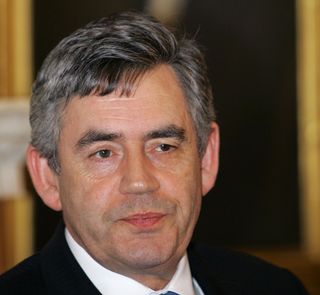The Russian Federal Property Fund has not yet decided on the size of a stake in Yuganskneftegaz that will be put up for sale
Published:
18 October 2004 y., Monday
The Russian Federal Property Fund has not yet decided on the size of a stake in Yuganskneftegaz that will be put up for sale. Neither did it decide on the starting price and the form of the public sale, Vladimir Zelentsov, spokesman for the Russian Federal Property Fund, told RBC.
“We are still waiting,” he said. At the same time, Mr. Zelentsov neither confirmed nor denied unofficial reports about the government’s plans to sell a 77 percent stake in Yuganskneftegaz for $4bn.
On October 12, the Russian Federal Property Fund received documents from the Russian Justice Ministry regarding the sale of Yuganskneftegaz’s assets to cover YUKOS’s tax debts. Earlier, Mr. Zelentsov said the Russian Federal Property Fund could auction Yuganskneftegaz in late November 2004. Information about the sale would be announced at the end of October 2004, he said.
The Justice Ministry of Russia decided to sell some of YUKOS’s assets through the Federal Property Fund because YUKOS had not been paying the tax debt quickly enough. The payment was “unjustifiable delayed”, according to the Justice Ministry. According to the Ministry, YUKOS’s confirmed tax debt is $3.73bn. The Justice Ministry also announced that Dresdner Kleinwort Wasserstein had valued Yuganskneftegaz at $10.4bn.
However, excepts from DrKW's report were published later, suggesting that Dresdner Kleinwort Wasserstein valued Yuganskneftegaz between $15.7bn and $18.3bn, taking into consideration the company’s net debt of $2.9bn and its potential tax liabilities. Sources who read the report, said $10.4bn was the most pessimistic valuation that could be applied if YUKOS lost its oilfield licenses.
Šaltinis:
rbcnews.com
Copying, publishing, announcing any information from the News.lt portal without written permission of News.lt editorial office is prohibited.
The most popular articles
 The future of Europe's troubled car market and 12 million jobs was under scrutiny Tuesday.
more »
The future of Europe's troubled car market and 12 million jobs was under scrutiny Tuesday.
more »
 Europe must take the lead in finding solutions to the global crisis at next week's G20 summit, British prime minister Gordon Brown told MEPs in a speech in Strasbourg on Tuesday that was warmly welcomed by leaders of the main political groups.
more »
Europe must take the lead in finding solutions to the global crisis at next week's G20 summit, British prime minister Gordon Brown told MEPs in a speech in Strasbourg on Tuesday that was warmly welcomed by leaders of the main political groups.
more »
 The US and Europe are in the worst economic crisis since the 1930s. With unemployment rising dramatically and businesses failing, fear is spreading.
more »
The US and Europe are in the worst economic crisis since the 1930s. With unemployment rising dramatically and businesses failing, fear is spreading.
more »
 Monday evening sees MEPs consider the emotive subject of food prices in Europe.
more »
Monday evening sees MEPs consider the emotive subject of food prices in Europe.
more »
 Shares in Wincor Nixdorf AG have fallen 3.5 percent and the ATM company says it is preparing to cut production hours.
more »
Shares in Wincor Nixdorf AG have fallen 3.5 percent and the ATM company says it is preparing to cut production hours.
more »
 Leaders agreed to use €5bn in unspent EU funds to upgrade energy and internet connections. And they raised the ceiling on EU aid to countries having difficulties.
more »
Leaders agreed to use €5bn in unspent EU funds to upgrade energy and internet connections. And they raised the ceiling on EU aid to countries having difficulties.
more »
 Charges on heavy-goods vehicles should be based in part on the air and noise pollution they produce, according to legislation approved by the European Parliament today.
more »
Charges on heavy-goods vehicles should be based in part on the air and noise pollution they produce, according to legislation approved by the European Parliament today.
more »
 EU agriculture officials are about to get a reality check. Starting next year, their on-the-job training will include a stint on a working farm.
more »
EU agriculture officials are about to get a reality check. Starting next year, their on-the-job training will include a stint on a working farm.
more »
 Privatisation, balanced budgets, low public deficits, and free trade have long been the mantra for prudent economic management.
more »
Privatisation, balanced budgets, low public deficits, and free trade have long been the mantra for prudent economic management.
more »
 Building roads and pipelines, ensuring food safety, improving education, fighting discrimination and boosting jobs are all funded from the EU budget.
more »
Building roads and pipelines, ensuring food safety, improving education, fighting discrimination and boosting jobs are all funded from the EU budget.
more »